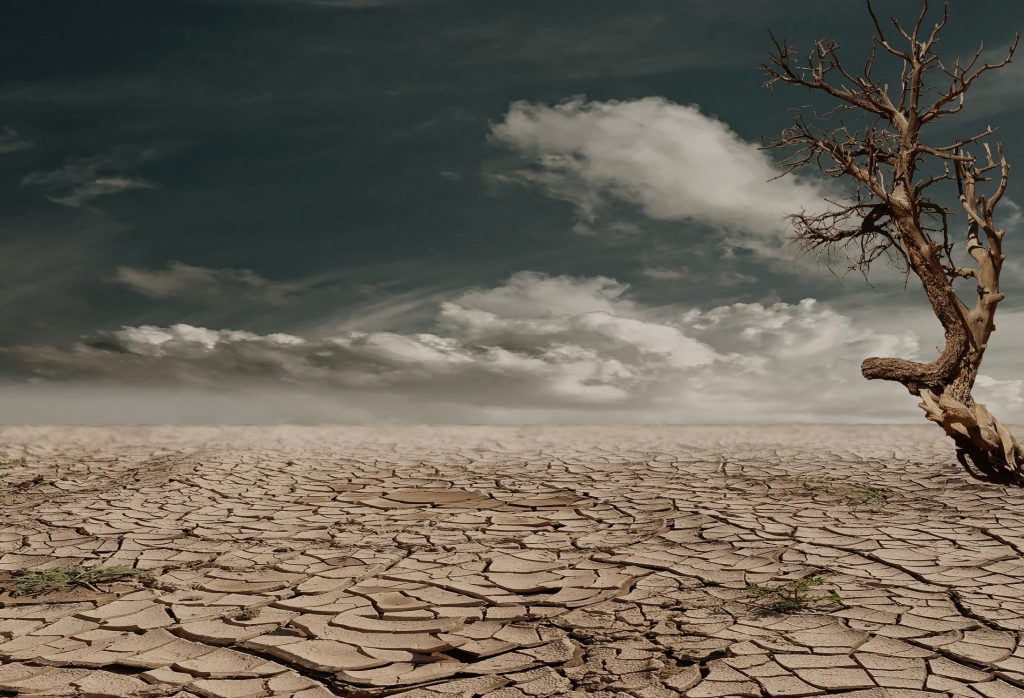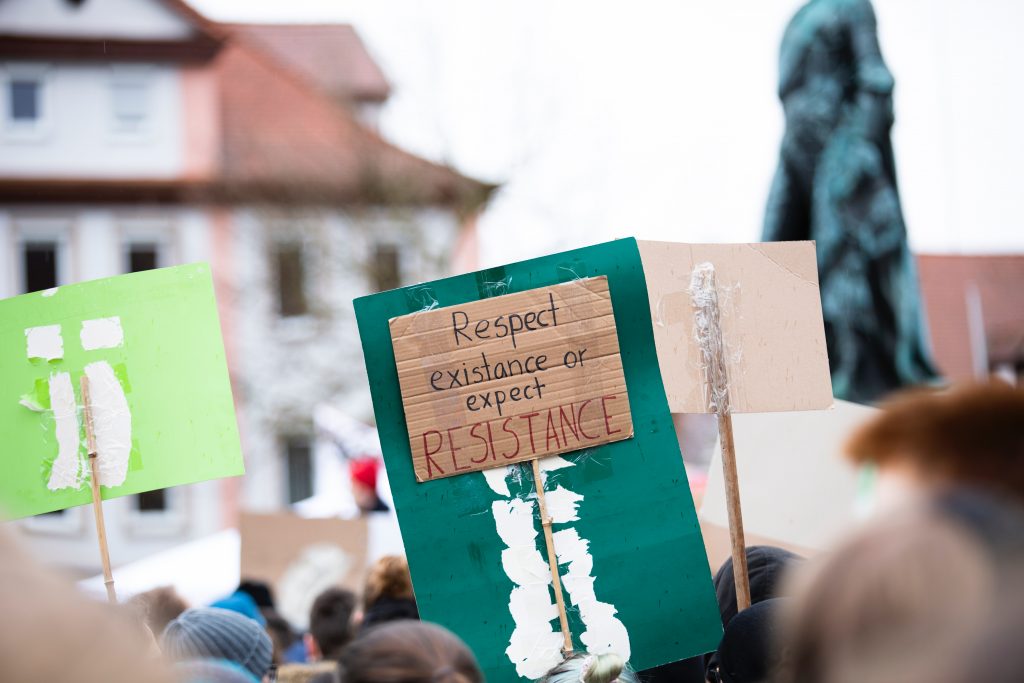
Climate change is a phrase that is used a lot right now and it can be a little overwhelming to read about all those scary things that are happening around us. Hotter summers, milder winters and overall just more extreme weather and climate. However, why is society just now finally starting to see the immediate threat and why didn’t we act sooner?
Let’s go back in time a little bit. In Ancient Greece, some people already believed in a form of climate change and knew that the climate could change over the course of centuries. For example, Theophrastus, a pupil of Aristotle, was a firm believer in climate change.
The whole concept of global warming and climate change is not new. In fact, there are many ideas that have been around for hundreds of years.
In the 18th century, scientists found evidence that the climate changed a lot of over the past thousand years. Eunice Newton Foote studied the sun and how it affected the warming of the earth and published his work which said:
“The highest effect of the sun’s rays I have found to be in carbonic acid gas. … An atmosphere of that gas would give to our earth a high temperature; and if, as some suppose, at one period of its history, the air had mixed with it a larger proportion than at present, an increased temperature from its own action, as well as from increased weight, must have necessarily resulted.”
In 1896 the first step towards human-induced climate change theories where made. Svante Arrhenius, a Swedish scientist, said that CO2 is a major factor in climate change and a substantial rise in CO2 can raise the temperature on earth. Through the early 1900s to 1950s scientists studied climate change and followed the findings of previous scientists.
A study in 1968 by the Stanford Research Institute noted:
If the earth’s temperature increases significantly, a number of events might be expected to occur, including the melting of the Antarctic ice cap, a rise in sea levels, warming of the oceans, and an increase in photosynthesis. [..] Revelle makes the point that man is now engaged in a vast geophysical experiment with his environment, the earth. Significant temperature changes are almost certain to occur by the year 2000 and these could bring about climatic changes.
Please, just give yourself a moment and read the last quote again. By 1968 we already knew, what would happen. We already knew, that we are steering towards a massive change in our climate. Throughout the 70s, scientists started to predict warming and already gave accurate estimates on how much the global temperature will rise if we didn’t act on it. In the 1980s we had already been given proof that we, as humans, are impacting the climate in a substantial way. Why wasn’t it heard by the people? Why did it take another 30 years?
The answer is simple and horrifying at the same time: money. Due to major oil corporations and other beneficiaries like the automobile industry, the coal industry and many more, the findings were simply suppressed. Major ad campaigns successfully managed to keep the major interest away from the biggest threat for humanity. We all got fooled by power-driven people, who only saw the money they can make. In the end, we can’t eat and survive on money, paper. There is also another factor: the Cold War, nuclear threat and other uncertainties that made people not think ahead 50 or more years. There was simply not enough proof for people to be concerned about something that may or may not be real.

Since the early 1990s, research on climate change has expanded and grown. Today, we already know a lot about it. We are basically sitting on years of research, data and facts. But next to climate change, another big problem developed with all the findings: the people who don’t believe that we, as humans, change the climate and have an impact on the climate. A lot of people don’t believe in the scientific data and facts of hundreds of years. They believe that we, as organisms on this planet, don’t influence it at all.
Let’s look at the last couple of years. Weather is getting more extreme, storms are more deadly and damaging than ever and wildfires are burning for weeks. Droughts, floods and record-breaking heat-waves are also something we are dealing with now every year. But what are the predictions? Where are we heading if we – you and me – aren’t doing anything?
Species will go extinct, they are already going extinct. It is already happening and we can witness it in real time. Polar bears are on the verge of extinction and it is happening fast. Due to the rising of temperatures, wildlife populations can’t survive anymore and they begin to die out. But the same is happening and will continue to happen to more and more wildlife and, eventually, humans. We can already see this happening in countries where the people rely on the resources surrounding them. For example, in the lands of Africa, people can’t harvest food because it is so dry and their water resources are running out.
Another big factor is food insecurity and nutritional deficiencies. The climate has changed so much and we are continuing to destroy farmland, soil and woodlands. We are essentially producing more meat all the while destroying woods and giving the crops all to the livestock. We could lose rice and wheat in many places around the world and people won’t be able to get the nutrition they need, as many cultures require these grains for their health and survival. Losing access to these grains and crops leads to sickness, malnutrition and many other problems.
We are already aware that coastal cities and islands are disappearing. A ridiculous amount of money is put into avoiding the sea from breaking into the city, even though in Florida that’s already happening. At least eight islands already disappeared into the Pacific Ocean due to rising sea levels and most coral reefs will be uninhabitable by the mid-21st century.
People will try to migrate into other functioning societies, which will be a big problem through social conflicts. By 2050 about 143 million people will need to be displaced, in order to survive. In many countries, the “immigration problem” is already something that right parties are using for their advantage. But the real problem and the cause of the problem is rarely talked about, and when it is talked about, it’s never by the right people; the people who can actually do something.

From melting polar ice caps, to hurricanes, to deadly heatwaves – we are literally living on the edge of a massive problem and many people try to avoid or deny it. There are bacteria and viruses coming back that were gone for centuries because of melting ice. They are getting released again and people are getting sick and dying.
We have still people in Office not taking action or just giving a minimal effort; some who refuse to see the problem at all or even acknowledge that it exists. People ask us a lot these days why we are vegan. The answer is a long one because we have so many reasons for our decision to go vegan. However, one very big reason for us becoming vegan is because of climate change. Sure, we can try to drive less, carpool or only drive when it’s necessary, but in the end, our food intake is the biggest and best benefactor in fighting climate change. What we eat literally can change the world. We have such a massive impact on the environment, on the climate. Knowing that, why wouldn’t you want to do everything you possibly could to save our planet?
We hope you liked this post and please share your thoughts with us in the comments below.
Please share with your friends and family and make sure to tag us on Instagram @sproutedconsciousness
Below you can find some links to the sources we used and many more interesting facts about climate change.



